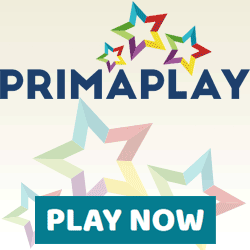Virginia Lawmakers Delay Online Gambling Bill for Further Review
January 23, 2025 Marija D

A proposal to legalize online gambling in Virginia has been temporarily shelved as legislators seek more time to evaluate its potential impact. Senate Bill 827, introduced by Sen. Mamie Locke, D-Hampton, aimed to authorize the Virginia Lottery Board to issue online gaming licenses.
However, on Monday, Locke requested the Senate Subcommittee on Gaming to postpone discussions, emphasizing the need for further analysis.
Purpose and Impact of Senate Bill 827
According to Locke, the bill seeks to “authorize reputable, regulated companies to offer internet gaming to Virginians within a safe and legal market.” She noted, “However, after introducing this bill, we have decided that it requires further study on this issue.” The proposal for legalization of iGaming in Virginia is expected to be reconsidered in 2026.
Under the proposed legislation, operators would face a $1 million application fee and a 15% tax on gross gaming revenue. Revenue from the tax would be distributed among local governments, the Problem Gambling Treatment and Fund (2.5%), and the state’s General Fund (97.5%).
Despite the potential financial benefits, concerns have been raised regarding the impact of online gambling on existing revenue streams. The Virginia Department of Planning and Budget issued a report warning that online gaming could divert revenue from the Lottery Proceeds Fund and the School Construction Fund. The Virginia Lottery also projected a net negative impact on overall state revenues.
Concerns and Opposition
The proposal has faced scrutiny over its potential to shift consumer spending away from traditional lottery sales and physical casinos. The Virginia Lottery has expressed concerns about the competitive pressures that online gaming could impose on its operations.
A fiscal impact statement indicated that the proposed 15% tax rate and associated fees might not fully cover the istrative costs required for oversight and enforcement.
Additional concerns include the possibility of increased criminal activity linked to internet gambling. The Virginia Criminal Sentencing Commission issued an impact statement noting that while historical data is limited, there is a potential risk of heightened crime rates associated with online gaming, which could place additional strain on law enforcement resources.
Future Outlook for Online Gambling in Virginia
Given these complexities, the bill has been placed on hold for further study. Originally pre-filed in late December and first introduced on January 8, Senate Bill 827 is expected to undergo additional scrutiny before any further legislative action in 2026.
The delay highlights the challenges facing advocates of legalized online gambling in Virginia. While proponents argue that iGaming can generate significant revenue, similar legislation has encountered resistance in other states. In 2024, no new states ed online casino legislation, underscoring the difficulties of expanding iGaming within existing regulatory frameworks.
Senator Locke’s proposal envisioned up to 15 online casino licenses in Virginia, with each of the state’s five land-based casinos allowed to partner with up to three brands. However, the proposed 15% tax rate is lower than the rates in other U.S. states with legal online gaming, raising questions about potential regulatory and financial implications.
Further complicating the issue, Cordish Companies, which owns the rights to Virginia’s fifth yet-to-be-built casino under the Live! brand, has been a vocal opponent of online gambling expansion. Mark Steward, General Counsel for Cordish Companies, argued that online gaming could negatively impact foot traffic to land-based casinos, a concern that lawmakers have taken into consideration.
Virginia will not see online casino legalization in 2025, as the legislative focus now shifts to 2026. Lawmakers and stakeholders will continue to assess the implications of Senate Bill 827, balancing the potential benefits of online gaming with its impact on existing revenue sources and regulatory concerns.
Source:
“Virginia’s Online Gambling Proposal Shelved for Further Review”, worldcasinodirectory.com, January 22, 2025















